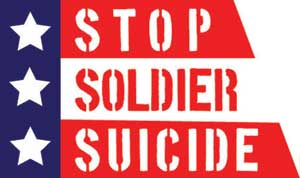Grief is hard. Grief for our friends is often
dismissed as unimportant, at least when compared to losing a family member. But
friendships forged in the military are different, very different. You’re
friends, but more, because your lives depend on it.
In my book, you’ll meet men and women on the front
lines who watched their friends die, and carry the trauma of that moment with
them for decades. You’ll meet noncombatants – doctors, nurses, chaplains, war
correspondents and even a little drummer boy from the Civil War – who struggle
with grief and guilt and carrying on.
You’ll learn about moral injury, and how that may be
a much bigger story than PTSD. And you’ll learn why the oft-recited statistic
of 22 veterans a day committing suicide is shockingly inaccurate.
And because grief also changes people for the
better, you’ll be introduced to individuals and organizations who are working
with veterans to resolve their guilt, work through their grief and honor their
fallen friends.
I struggled with the title. Everything I came up
with was too vague or too wordy. So I explain in this excerpt how I made my
decision:
The popular mini-series
Band of Brothers took its title from what has become known as the St. Crispan’s
Day speech in Shakespeare’s Henry V:
This
story shall the good man teach his son;
And
Crispin Crispian shall ne’er go by,
From
this day to the ending of the world,
But we in it shall be remembered –
We few, we happy few, we band of
brothers;
For he to-day that sheds his blood
with me
Shall be my brother…
Since Shakespeare’s
time we’ve often heard soldiers, sailors and Marines refer to their battle
buddies as “brothers”. Even though it’s somewhat problematic, given the
increasing role of women on the front lines, the designation has stuck.
In writings as far back
as the ancient Greeks, the relationship between soldiers has been described as
comparable to family. A family is a group of people related by blood that
functions together with common goals and dependency. “Blood is thicker than
water,” right?
In the military,
nothing can be accomplished without the trust and dependability of those in the
unit. That cohesiveness is the difference between success and failure, life and
death, every hour of every day. The bond is stronger than a normal friendship
because your lives depend on it. So, when asked why they refer to their friends
as brothers, you are likely to get an answer along the lines of “because they
mean as much to me as family.” Referring to other soldiers as family members
is, from their perspective, the highest compliment.
A similar phenomenon
existed in the AIDS community in the 80s and 90s. People with HIV/AIDS – gay,
straight, young, old, male, female – were often abandoned by their families.
Their friends became their family of choice – of necessity, really – because
their lives depended on them.
Conventional wisdom
still holds that the bond between family members is normally stronger than that
between friends. But I wonder why, considering this quote that’s quite a bit
older than Shakespeare’s:
“Greater
love has no one than this: to lay down one's life for one's friends.” (John
15:13)
That’s why this book is not titled Band of Brothers
or Band of Brothers and Sisters.
This book is titled Band of Friends.







